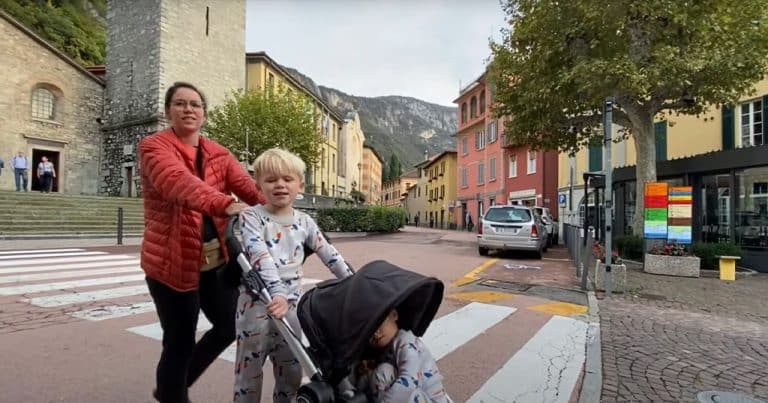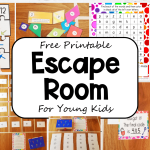Educating kids while traveling offers a unique and enriching experience that goes beyond traditional classroom learning. For starters, travel provides hands-on, real-world experiences that can’t be replicated in a classroom. Talk of historical sites, museums, and natural wonders which are some of the interactive learning environments your kids can learn from.
You can even choose to blend your travel experiences with more traditional forms of education, in a way that strikes the right balance for your kids. Well, this article will help you explore the myriad ways in which you can provide a rich and unconventional education for your children while on the road.
Learning Through Cultural Immersion
Again, traveling will offer a remarkable opportunity for your children to immerse themselves in diverse cultures, fostering a deep understanding and appreciation for the world’s richness. Unlike textbooks and lectures, experiencing different cultures firsthand imparts lessons that go beyond mere facts.
From sampling local cuisines to participating in traditional ceremonies, your children can gain insights into the intricacies of global societies, promoting empathy, tolerance, and cultural intelligence.
For instance, a family exploring the markets of Marrakech not only learns about the vibrant colors and textures but also engages in bargaining, understanding the local economy, and practicing basic language skills. Such experiences instill a cultural awareness that is difficult to replicate in a traditional classroom setting.
Language Acquisition Through Travel
One of the most effective ways to learn a language is through immersion. While traveling, your children can have the opportunity to engage with native speakers, enhancing their language skills naturally. Whether its negotiating prices in a local market, ordering food at a restaurant, or simply conversing with locals, these practical language experiences are invaluable.
Additionally, you can take language learning a step further as a family by enrolling in local language classes, hiring tutors, or participating in language exchange programs. The ability to communicate in different languages opens doors to new friendships, expands cognitive flexibility, and prepares children for a globalized world.
Another option is to supplement immersion experiences with structured learning. You can explore options like enrolling your children in language classes, hiring an online language tutor, or working with a face-to-face language instructor.
Moreover, utilizing language apps can provide interactive and convenient ways to practice vocabulary, grammar, and pronunciation. By combining immersion experiences with structured learning methods, your children can develop a well-rounded proficiency in a new language, which will benefit them socially, academically, and professionally in the future.
Mathematics in Real-life Context
It is no secret that the abstract concepts taught in math classrooms can often feel disconnected from real life. Traveling provides numerous opportunities to make math tangible and practical. From calculating distances between destinations to managing a budget for the trip, your children can apply mathematical concepts learnt in the classroom in real-life scenarios.
For example, planning routes, estimating travel times, and converting currency are all mathematical skills that can be honed on the road.
Science in Nature’s Classroom
Traveling often takes families to breathtaking natural landscapes, turning the great outdoors into an unconventional classroom. Whether it is the Amazon rainforest, the Grand Canyon, or any other fascinating destination, your children will have the chance to study ecology, geology, and biology in their natural habitats. Learning becomes an adventure as they observe wildlife, identify plant species, and understand the delicate balance of ecosystems.
As parents, you can incorporate hands-on activities like nature hikes, bird watching, and even camping, allowing your children to connect with the environment on a personal level. Lessons learned in nature often translate into a profound respect for the environment, fostering a sense of responsibility towards the planet.
History Comes Alive
History is no longer confined to dusty textbooks when families embark on a journey through historical sites. The ruins of ancient civilizations, medieval castles, and revolutionary landmarks become living textbooks, telling stories that captivate young minds. Whether it is walking the cobblestone streets of Rome, taking a guided tour from https://amsterdamtickets.tours to the iconic Vincent Van Gogh Museum or exploring the pyramids of Egypt provides an immersive history lesson, making the past tangible and relevant.
You can enhance the experience by incorporating storytelling, role-playing, and interactive activities. Rather than memorizing dates and events, children absorb historical knowledge by experiencing the remnants of the past firsthand. This unconventional approach makes history a vibrant and engaging subject, fostering a love for learning that extends beyond the classroom.
Creativity and Critical Thinking
Unstructured travel experiences stimulate creativity and critical thinking. Children are faced with novel situations that require them to think on their feet, solve problems, and adapt to new environments. Exploring unfamiliar landscapes, tasting exotic cuisines, and encountering different art forms inspire creativity and broaden their perspectives. The ability to think critically and creatively becomes a natural outcome of navigating the challenges presented by a life on the road.
In addition, traveling also will expose your children to a variety of social situations, helping them develop essential interpersonal skills. Meeting new people, navigating unfamiliar environments, and adapting to different cultural norms contribute to their social growth. Moreover, interacting with peers from diverse backgrounds during their travels helps foster empathy, tolerance, and a global perspective.
Resilience and Independence
Furthermore, traveling often if not always involves unexpected challenges, from missed flights to language barriers. These challenges provide invaluable life lessons, that will help teach your children resilience, adaptability, and independence. Learning to navigate unfamiliar territories fosters a sense of self-reliance and resourcefulness that cannot be acquired within the confines of a traditional classroom.
Balancing Travel and Formal Education
While the benefits of educating children while traveling are undeniable, it’s essential to strike a balance between experiential learning and formal education. Many families opt for homeschooling or enroll their children in online programs to ensure continuity in their education. Integrating formal education with travel experiences allows children to reap the benefits of both worlds, combining structured learning with the richness of real-world experiences.
Project-Based Learning
Finally, traveling allows families to embrace project-based learning, a hands-on approach that encourages exploration and creativity. Whether it’s documenting a travel journal, creating a video documentary, or conducting scientific experiments, your children can actively participate in the learning process. Projects tailored to their interests not only deepen their understanding of various subjects but also cultivate critical thinking and problem-solving skills.
For example, a family traveling through Southeast Asia might engage in a project about marine life, researching and documenting the diverse ecosystems they encounter. This approach fosters a sense of ownership over their education, making learning a self-directed and fulfilling endeavor.
Wrapping up
The road to knowledge is not always paved with textbooks and classrooms. Educating your children while traveling will offer a unique and unconventional approach that taps into the vast resources of the world as a classroom. From cultural immersion and language acquisition to hands-on experiences in math and science, the opportunities for learning on the road are boundless. As families increasingly recognize the value of experiential education, the road less traveled may, in fact, be the most enriching path to knowledge for the next generation.









